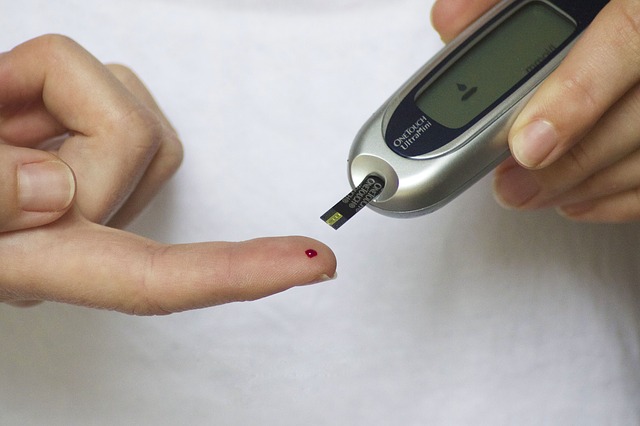Water retention and its subsequent weight gain is a
particularly bothersome issue for women of all ages, let us learn all about it.
Understanding water retention
Water or fluid retention is also referred to as edema. It
occurs in the circulatory system and may cause bloating, and swelling in the
extremities, such as the legs, feet, and ankles.
People who lead extremely sedentary lifestyles with little
exercise or those who are bedridden are susceptible to this condition.
Edema can also be indicative of kidney disease or heart
failure, so if you have a severe case of it
or a severe sudden onset, get emergency medical care.
For the non-severe varieties, that cause swelling, bloating
and discomfort and there is no underlying medical condition, making changes in
your diet and exercise habits can help.
Why does Water Retention Happen?
When the body retains water, it means that there is extra
water around in the tissues that lie between the cells in the body. There are
several reasons why this could happen, including the following:-
• Carbohydrates-
Carbohydrates
increase water retention, this is why bloating often occurs after a carb heavy
fast food meal and may wake up with an extra five pounds on the scale, all in
water weight. Let us start with the carbohydrates. Every one gram of
carbohydrate requires three to four grams of water in order to store and
process it. In order to translate that into a familiar language, say you eat a
medium potato. You will get 37 grams of carbs, which needs 110-150 grams of
water. That’s about 5 ounces, just below a half pound. On a moderately high
carbohydrate diet, the average person will eat around one and a half pounds of
water weight just from the carbohydrates in the diet. If you stop eating
carbohydrates, you will lose that pound right away.
• High levels salt-
High
levels of salt in the diet is also responsible for excess retention of fluids
and if salt is present in every
processed meal you eat, you will retain even more fluids.
• Sex
hormones-
This is especially true for women. Water retention gets more
complicated for women. Most women will retain water during their menstrual
cycle. In general, 92 percent of women will have water retention in the week before
their menstrual period starts. Once menstrual bleeding actually begins, the
water weight drops off once again. Some women will have persistent water
retention, even after their period. During your period, there are notable
changes in your hormone levels, which lead to an increased amount of potassium
and sodium in your system.
• Cortisol-
Chronically
high levels of the stress hormone cortisol is a problem for many reasons, and
water retention is one of them. It is difficult to say how much cortisol will
increase water retention. It can also increase body fat so that the weight you
gain from cortisol is probably both from fat and water. If you are stressed out
and feeling puffy or bloated, some of that is probably from water.
Your body is able to retain enough water to equal about 5
pounds per day, depending on the kind of foods you take and the amount you
consume.
If you add up all those causes of water retention, you can
easily get ten pounds of fluctuation from just water. This is especially true for
premenstrual women or from anyone who just ate a high carbohydrate dinner.
PMS and water retention
PMS or premenstrual syndrome is a common cause for water
retention in many women. There have been no exhaustive studies that link water
retention with premenstrual syndrome. However, lack of essential vitamins and
minerals and added salt are triggers for the retention of water in some
women.
A British researcher suggested that low blood sugar during
PMS could lead to water retention. She argues that low blood glucose levels
cause the body to retain water by releasing adrenaline. This signals the body
to release more blood sugar. Once the glucose leaves the body, the cells are
then filled with water leading to weight gain and bloating.
Recognizing water retention
Water retention is marked by an increase in weight of about
2-5 pounds per day. This is a common sign of swelling, which is characterized
by having a bloated abdomen.
Sometimes your clothing can be too tight. Many women who
have this problem complain of pain in the swollen areas of their bodies,
particularly the feet and ankles.
Key Steps In Reducing Water Retention
• A crucial
step in dealing with water retention is to eat less salt, and avoid processed
and junk foods, which are high in salt. Read food labels and avoiding processed
food products. Try putting the salt away so you won’t be tempted to use it. The
use of calcium supplements with your meals can lessen the risks of retaining
fluid.
• Increase
magnesium intake, one study found that
women who took 200 mg of magnesium every day, had less retention during
PMS and other studies have shown similar results. You can get magnesium
naturally from whole grains, nuts, green vegetables, and dark chocolate.
• You might
want to consider working out during your menstrual period to avoid water
retention and weight gain. Exercise will increase the blood flow to your
kidneys for excretion.
• Make sure
you remain hydrated throughout the day by drinking a lot of fluid.
• Other
ways to reduce water retention include natural diuretics such as lemon water
and grapefruit.
• It also
helps to eat 5 to 8 smaller meals throughout the day, instead of 3big
meals.





















